Philosophy of Criminal Justice
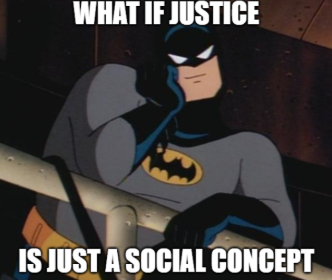
Batman. Spiderman. Wonder Woman. These characters are superheroes that combat crime and injustice, but we sometimes overlook that they caused some damage too. What makes their actions just and the actions of others unjust? Philosophers have been asking this question for a long time, perhaps since Socrates and his friends discussed what the perfect city would be like in The Republic. They debated whether the right thing to do is just what the person in charge or the strongest 💪 says it is or whether it is something more than that.
That goes for injustice, too. What makes something wrong? And if it’s wrong, should it be illegal 🚫? You probably don’t like homework on the weekend, but should it be illegal? If it were, we would have a lot of teachers in jail. What about smoking? We all know it’s bad for your health, and it also can hurt others through second-hand smoking. Why is it not outlawed?
The philosophy of criminal law considers these questions. It divides crimes into two categories: those that are wrong in themselves or mala in se (wrong everywhere, every day, no matter who does them) and those that are wrong because we say so or mala prohibita, which means wrong because it’s prohibited. These could include things like parking violations and hitchhiking 👍.
Philosophy of criminal law also thinks about what it even means to have laws. Who makes them up? Who gets to enforce them? What about rights? You’ve probably heard about the rights to life, liberty, and the pursuit of happiness 😁, but have you ever thought about where they come from? What sorts of things do you have to do for them to be taken away? Some people are even abolitionists — and not the anti-slavery kind, though they would be against slavery too. They believe we should abolish criminal law altogether.
Videos
Criminal Law & Punishment
Philosophy Tube
-
 Criminal Law & Punishment
Criminal Law & Punishment
-
 Foucault Crime, Police, and Powe
Foucault Crime, Police, and Powe
-
 Law and Morality
Law and Morality
-
 What is Justice?
What is Justice?
Key Texts
-
Faces at the Bottom of the Well
Derrick Bell -
Critical Race Theory
Kimberle Crenshaw, Neil Gotanda, Gary Peller, Kendall Thomas -
Discipline & Punish: The Birth of the Prison
Michel Foucualt -
The Doctrine of Right (first part of the Metaphysics of Morals)
Immanuel Kant -
The General Theory of Law and Marxism
Yevgeny Pashukanisof Law and Marxism -
The New Jim Crow
Michele Alexander
Pop Culture Examples
Want to Know More?
-
Criminal Law
Stanford Encyclopedia of Philosophy -
Punishment
Law Library -
Punishment
Stanford Encyclopedia Punishment -
Punishment
Internet Encyclopedia of Philosophy
Questions to Think About
-
Should the state have the power to punish criminals?
-
In what cases does an individual deserve punishment?
-
Is illegal the same thing as immoral?
-
Why do we follow the law?
-
How do we come up with just punishments for crimes?
Key Thinkers
-
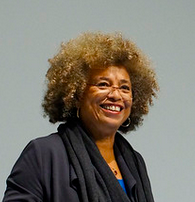
Angela Davis
-

Kimberle Crenshaw
-

Derrick Bell
-
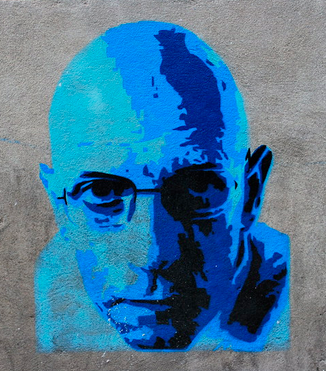
Paul-Michel Foucault
-
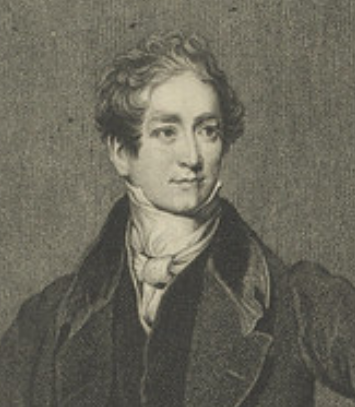
Robert Peel
-
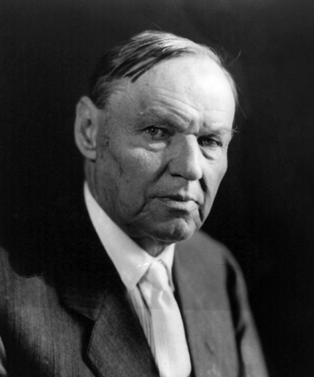
Clarence Darrow
-

Clara Shortridge Foltz
-
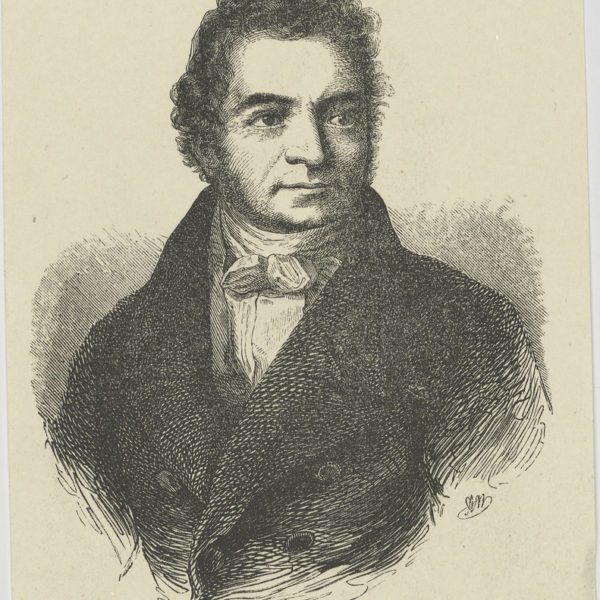
Paul, knight von Feuerbach
-

David Dudley Field
-
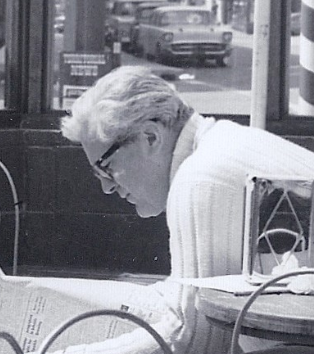
Melvin Mouron Belli
-

Edward Livingston
“Enclosures: Quotidian Carceralities in the US and Occupied Palestine (Angela Davis)” by Columbia GSAPP is licensed with CC BY 2.0. To view a copy of this license, visit https://creativecommons.org/licenses/by/2.0/. https://www.flickr.com/photos/38426037@N04/15255790824
“File:Kimberlé Crenshaw (46951501615).jpg” by Heinrich-Böll-Stiftung is licensed with CC BY-SA 4.0. To view a copy of this license, visit https://creativecommons.org/licenses/by-sa/4.0. https://commons.wikimedia.org/wiki/File:Kimberl%C3%A9_Crenshaw_(46951501615).jpg
“KP0002991” by iukarchives is licensed with CC BY-NC-ND 2.0. To view a copy of this license, visit https://creativecommons.org/licenses/by-nc-nd/2.0/. https://www.flickr.com/photos/182218171@N03/49464944442
“Michel Foucault” by kong niffe is licensed with CC BY-NC 2.0. To view a copy of this license, visit https://creativecommons.org/licenses/by-nc/2.0/. https://www.flickr.com/photos/40762476@N00/5340624604
“Bildnis des Robert Peel” by ubleipzig is licensed with CC PDM 1.0. To view the terms, visit https://creativecommons.org/publicdomain/mark/1.0/. https://www.flickr.com/photos/132294445@N05/16854134689
“Clarence Darrow Reframed” by Laurel L. Russwurm is licensed with CC PDM 1.0. To view the terms, visit https://creativecommons.org/publicdomain/mark/1.0/. https://www.flickr.com/photos/45021273@N08/17461892022
“File:Clara Shortridge Foltz.jpg” originally from the Online Archive of California in Taber, San Francisco is licensed with CC PDM 1.0. To view the terms, visit https://creativecommons.org/publicdomain/mark/1.0/. https://commons.wikimedia.org/wiki/File:Clara_Shortridge_Foltz.jpg
“Bildnis des Anselm, Ritter von Feuerbach” by ubleipzig is licensed with CC PDM 1.0. To view a copy of this license, visit https://creativecommons.org/licenses/publicdomain/mark/1.0. https://www.flickr.com/photos/132294445@N05/17027872801
“David Dudley Field” by Mathew Brady Studio, active 1844 – 1894 is licensed with CC0 1.0. To view the terms, visit https://creativecommons.org/publicdomain/zero/1.0/. https://npg.si.edu/object/npg_NPG.81.M735
“File:Melvin Belli, Clown Alley, San Francisco, 1964 (28441360718).jpg” by Gary Stevens is licensed with CC BY 2.0. To view a copy of this license, visit https://creativecommons.org/licenses/by/2.0. https://commons.wikimedia.org/w/index.php?curid=86236069
“Edward Livingston” by James Barton Longacre, 11 Aug 1794 – 1 Jan 1869 is licensed with CC0 1.0. To view a copy of this license, visit https://creativecommons.org/publicdomain/zero/1.0. https://npg.si.edu/object/npg_NPG.76.62
Key Terms
-
- Justice
- A concept of proper proportion between someone’s actions and the consequences of these actions
-
- Retribution Model
- A criminal justice model that focuses on making the criminal “pay” for their actions
-
- Rehabilitation Model
- A criminal justice model that focuses on reforming the criminal so he won’t commit another act.
-
- Reconciliation
- a method of facilitating engagements between victims and criminals
-
- Incapacitation
- usually refers to putting someone in jail or prison for the crimes committed as an act of justice
-
- Deterrence
- the idea or theory that the threat of punishment will deter people from committing crimes and reduce the probability and/or level of offending in society







